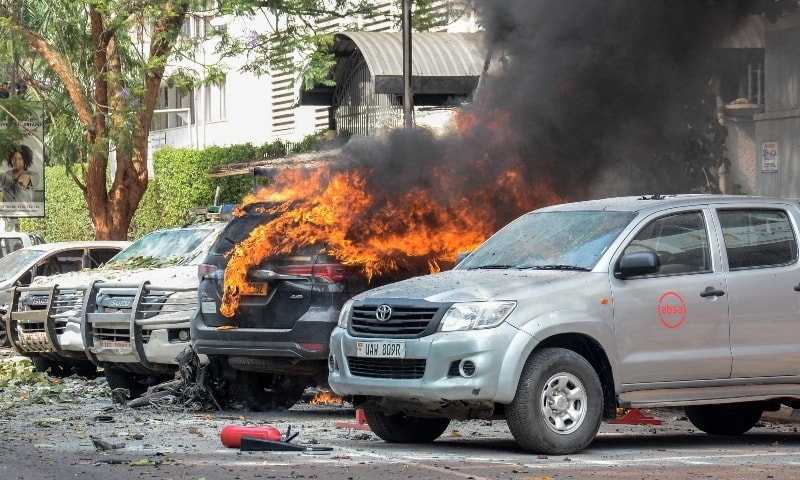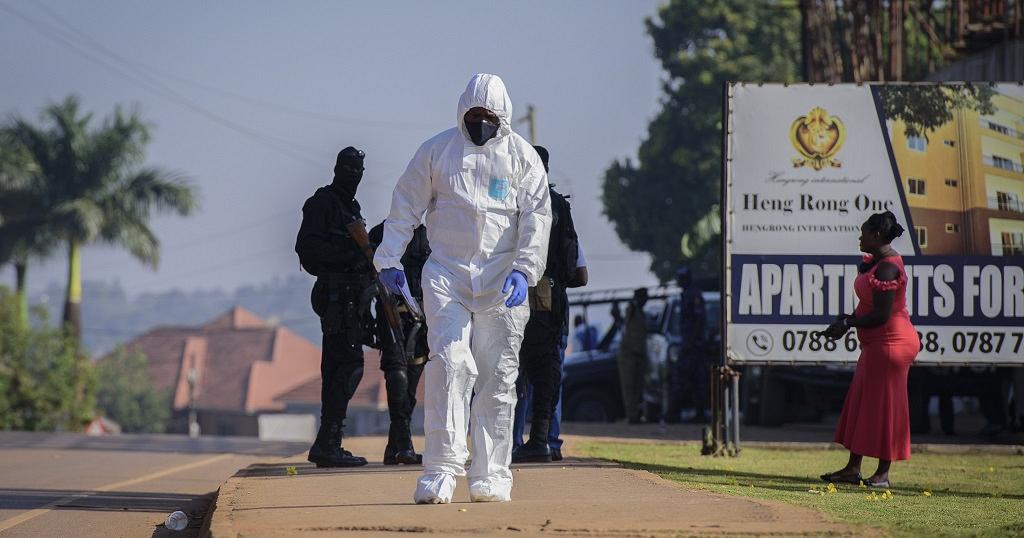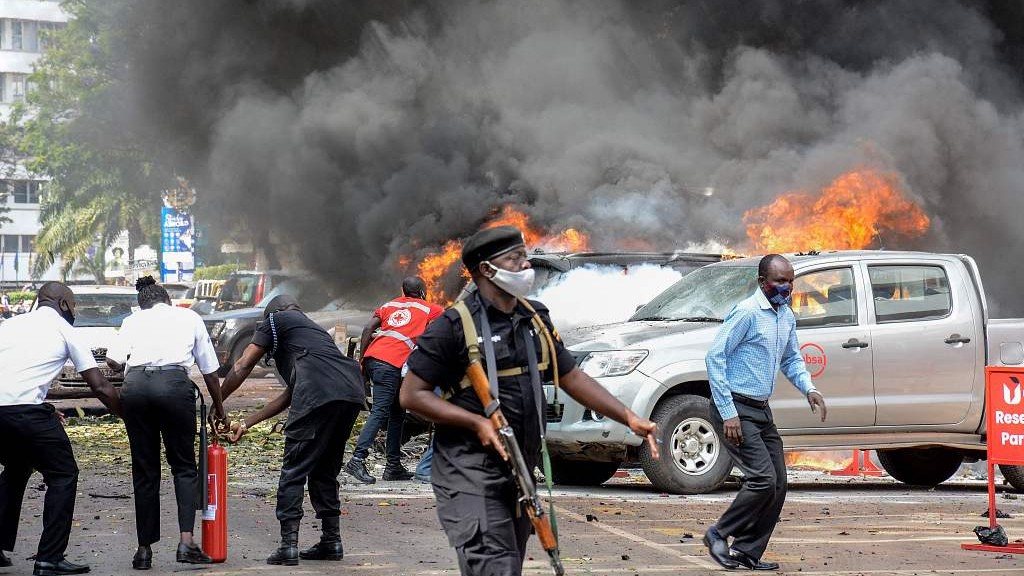KAMPALA– Islamic State claimed an attack in the heart of Uganda’s capital on Tuesday after three suicide bombers killed three people and sent members of parliament running for cover, in the latest in a wave of bombings.
The blasts in Kampala, which forced the evacuation of parliament, shocked a nation known as a bulwark against violent Islamist militants in East Africa, and whose leader has spent years cultivating Western security support.
Islamic State claimed responsibility via the group’s Amaq News Agency on an affiliated Telegram account. The nicknames of the three attackers indicated all were Ugandan.
The death toll including the three bombers was six, police spokesperson Fred Enanga said, including police officers. A diplomat told Reuters two police officers were killed.

Enanga said 33 people were being treated in hospital, including five in critical condition.
Police said intelligence indicated the Islamic State-aligned Allied Democratic Forces (ADF) were responsible.
“Our intelligence…indicates that these are domestic terror groups that are linked to ADF,” Enanga said.
The explosions three minutes apart – the first near the central police station and two very close to parliament – sent MPs and office workers rushing for cover over shards of broken glass as a plume of white smoke rose above downtown.
A suicide bomber wearing a backpack detonated near the checkpoint at the police station, killing two, Enanga said. The second attack, involving two suicide bombers on motorbikes, killed one person.
“A booming sound like that from a big gun went off. The ground shook, my ears nearly went deaf,” said Peter Olupot, a 28-year-old bank guard close to parliament. “I saw a vehicle on fire and everyone was running and panicking. I saw a boda boda (motorcycle) man – his head was smashed.”

Anti-terrorism police caught another potential suicide bomber and found a device at his home, Enanga said.
MILITANT GROUPS
The ADF was founded by Ugandan Muslims but is now based in the forested mountains of the neighbouring Democratic Republic of Congo, where it has been blamed for thousands of civilian deaths.
Last month, Islamic State claimed its first blast in Uganda – an attack on a police station in Kampala which killed no one.
Days later, it said a “security detachment” in “Central Africa Province” bombed a restaurant. Police said the device killed a waitress and wounded three others, and linked it to the ADF, which has pledged allegiance to Islamic State.
Also last month, Ugandan police said a suicide bomber had blown up a bus, killing only himself. His affiliation was unclear.
Dino Mahtani of the International Crisis Group think tank said the ADF’s focus had shifted from settling local scores and controlling local war economies.
“With the more recent affiliation of its main faction to ISIS (Islamic State), a number of foreigners from across East Africa with more globalist jihadist agendas have been arriving into its camps,” he said.
Laren Poole from the U.S.-based Bridgeway Foundation said the Uganda bombings and a recent attempt in neighbouring Rwanda, which police announced on Oct. 1, appeared to be linked to a Ugandan bombmaker active in eastern Congo called Meddie Nkalubo, nicknamed “Punisher”.
The group begin training fighters to use suicide vests in March, he said, and since then have hatched increasingly sophisticated plots. Initial physical evidence linked Tuesday’s Kampala attack to the ADF, he said – probably an attempt to showcase its strength to attract volunteers.
Islamic State is heavily promoting actions in what it calls “Central Africa Province”, he said.
(Reuters)






